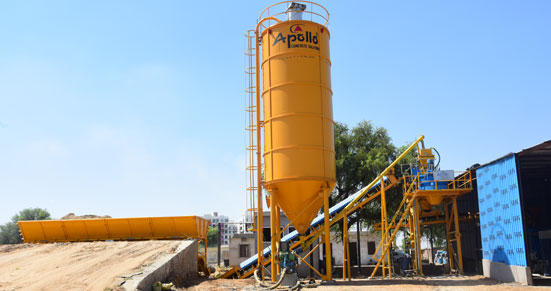Table of Contents
Most of the constructions taking place around us today are the concrete constructions. A concrete construction is the one that is made up of construction material called concrete. Concrete is a versatile construction mixture made up of substances like gravel, sand, water and cement. All these substances are usually mixed in varying proportions in special concrete batching plant or transit mixers for appropriate concrete formations depending on the usage and the conditions of the area where the concrete is being used for construction.
Why Concrete is Better for Construction?
Whether it is buildings, roadways or any other form of construction, concrete is more preferred as a substance for construction because of its super hardening and weather proof properties. As compared to other forms of construction especially the wood, concrete has got more durability and gives better resistance to the constructions against conditions like weathering, erosion and natural disasters. It is an inert construction material and therefore provides better protection from fire too. As wood it does not even get rotten nor is affected by wind, mildew damages. For all these reasons concrete is preferred for various kinds of constructions like residential and commercial buildings, dams, bridges, roadways, parking lots, industrial pavements etc.
Advantages of Concrete Construction
There are number of advantages with constructions of concrete. Concrete constructions usually last more. They require less repairs & maintenance and therefore reduce the maintenance costs and add up to a solid investment for the property owners. It has been found that by using concrete in constructions nearly 20% of the total life cycle construction costs can be saved and energy-efficient structures can be built cost effectively. A concrete construction is more secure and safe. Even for environment friendly constructors, concrete constructions are the best options. They reduce the urban heat island effect by reducing emissions of CO2 and easily support green roof projects. The concrete constructions when done with insulating concrete material will reduce energy usage nearly by 40%. They normally stay clean and are less affected by the outside temperature swings. Furthermore, the solid construction of concrete buildings helps prevent the entry of pollen, dust and other airborne pollutants. Roads and highways made of concrete are usually free of spring thaw load restrictions and therefore help in the reduction of fuel consumed by heavily loaded vehicles.
Forms of Concrete Construction
Depending on the ways the concrete is produced, there are different forms of concrete constructions taking place around us. The most common of all is the in-situ or ready mix concrete construction. In this form of concrete construction the construction takes place by the help of ready mix concrete processed in ready mix concrete plant or equipment at local plants under controlled conditions. Second is the precast concrete construction. In precast concrete construction, the precast concrete products for construction are cast at the factory. The precast products can be anything from concrete bricks and paving stones to bridge girders, structural components and panels used for cladding in constructions. There is also tilt-up construction, which is one of the fastest growing construction technologies in the world. This type of concrete construction is usually associated with reasonable cost, low maintenance, durability, speed of construction, and minimal capital investment and therefore is widely preferred. Concrete in form of masonry units is also used for a wide range of building applications and architectural needs because of its flexibility to be molded into a variety of shapes, configurations, colors and textures. Apart from these, various other forms of concrete constructions are also found like concrete pavings, concrete basements etc.
So all-in-all from this, we can say that concrete is a very beneficial and most commonly used form of construction material.
Table of Contents

